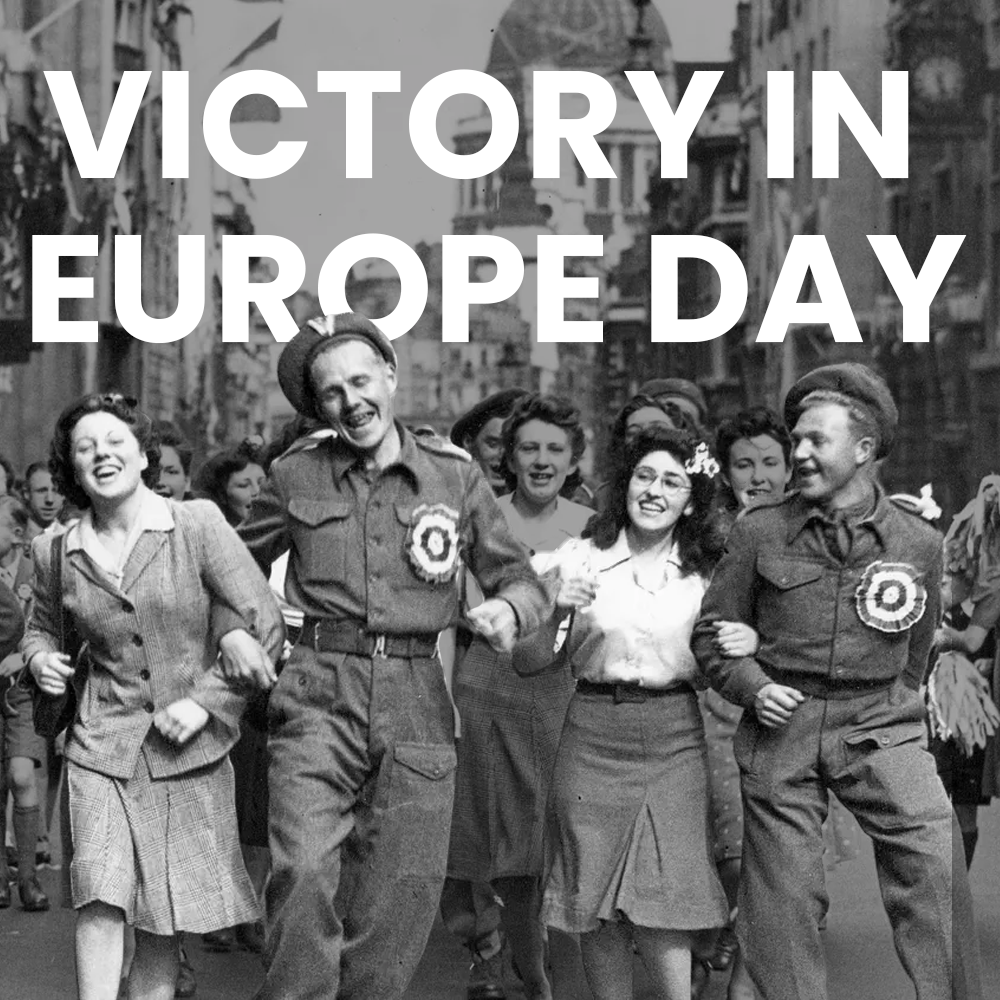On May 8, 1945, the United Kingdom and the United States marked Victory in Europe Day with great jubilation. The occasion commemorates the defeat of the Nazi war machine during World War II. Cities in both nations, including formerly occupied cities in Western Europe, adorned themselves with flags and banners to celebrate this historic victory. It was a momentous occasion that signified the end of a long and grueling conflict, and a symbol of hope for a brighter future.
VE Day was a momentous occasion, and Winston Churchill, Britain’s Prime Minister, was at the forefront of the Allies victory over Nazi Germany. The people of Britain were eager to celebrate with him as he made a national radio broadcast at 3 pm, announcing the end of the war in Europe. However, he also cautioned that despite the joyous news, there were still challenges to be faced.
‘We may allow ourselves a brief period of rejoicing, but let us not forget for a moment the toil and efforts that lie ahead.’
World War II ended in August 1945 with Japan’s surrender, but its impact on individuals and society lasted for a long time after.
It’s important to acknowledge that not everyone celebrated VE Day, especially those who lost a loved one during the war. Amidst the festivities and street parties, many people were somberly reflecting on their loss or worrying about the safety of their loved ones still serving overseas.


Recent Comments